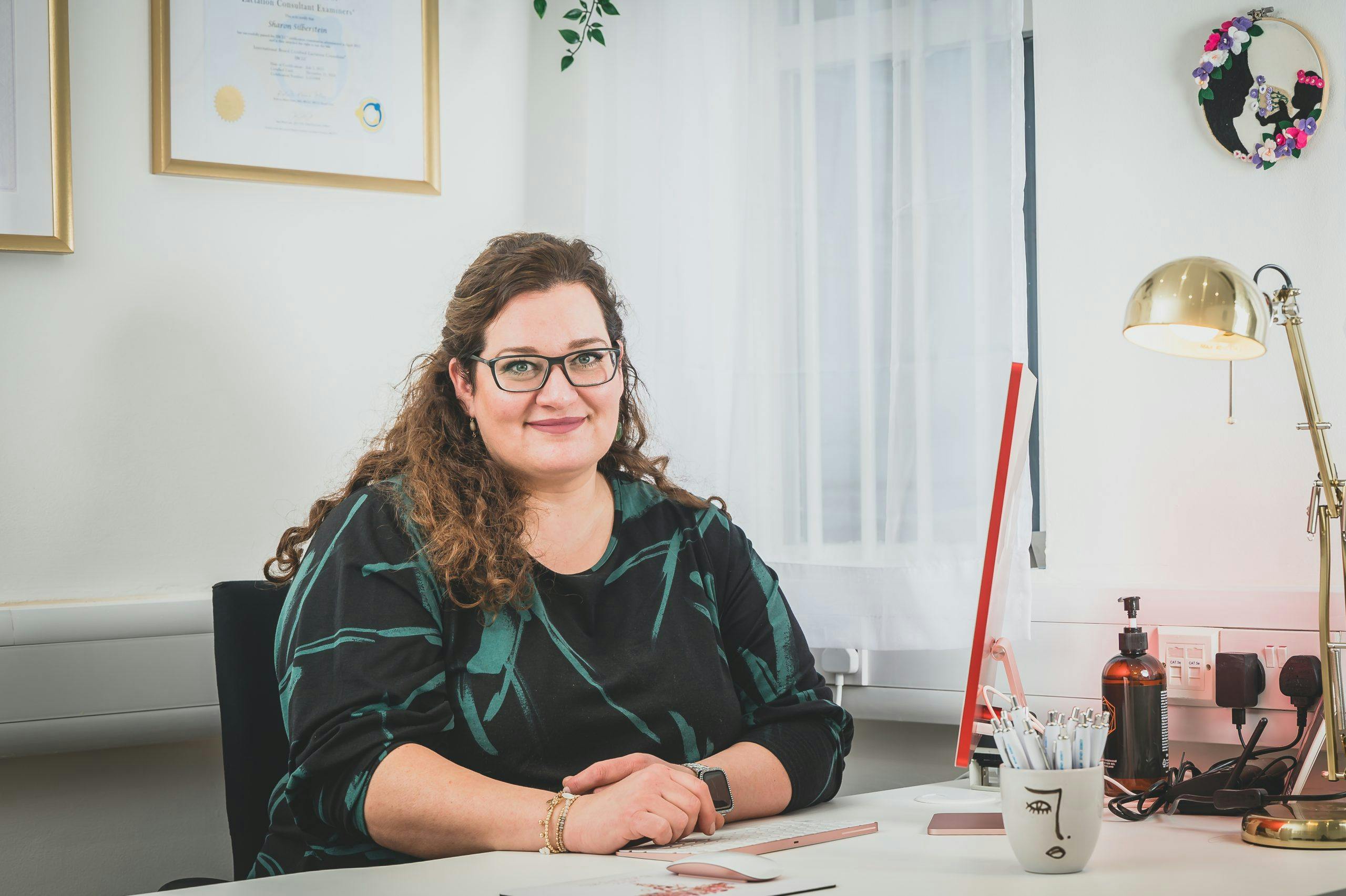
Medically Reviewed by: Dr Sharon Silberstein
Breastfeeding gets a lot of hype and for good reason! It provides the optimal nutrition for your baby, is custom made, easily digested and its composition changes with age, stage and during illnesses. Studies also tell us it's a fantastic way to nourish babies, supporting their growth and development while also giving their immune systems a boost and we're here for that.
The UK Department of Health, The World Health Organization (WHO) and the NHS recommend that you should exclusively breastfeed for the first 6 months of your baby's life. After that, breastfeeding can continue for as long as you like alongside suitable solid foods up to two years old or beyond.
While we understand that breastfeeding isn't possible for everyone, it does offers significant benefits for both mother and baby when it is an option. It may take some time to get the hang of it, but once you both find your rhythm, it can be a deeply rewarding way to connect, nourish and nurture your little one. Just as you settle into a routine, your little one will soon begin weaning, which may lead you to consider the possibility of 'extended breastfeeding.'
Dr. Sharon Silberstein is a medical doctor, lactation consultant and tongue tie specialist with more than 12 years of experience says, "Many mothers struggle with establishing breastfeeding as the NHS does not always have the resources to support mothers in their early postpartum. Mums might consider seeking the help of an IBCLC (International Board Certified Breastfeeding Counsellor) to get breastfeeding on track. The more help mother receive in the beginning, the more likely it is to result in a beautiful, uncomplicated and hopefully lasting breastfeeding journey.
What is extended breastfeeding?
Breastfeeding beyond one year is often referred to as 'extended breastfeeding' but it's worth mentioning that this is a cultural term, not a medical one. It simply refers to people who nurse for longer than is usual in their culture. In the UK that's around 6 months and it usually comes down to personal choice or circumstances (going back to work or little ones starting nursery).
Caprice Jerome breastfed her daughter until she was almost 4 years. "It was always something I wanted to do, as my mum had encouraged me, having done the same with me. I was aware of the health benefits for my baby and the convenience it offered. I loved being responsive to my baby's cues and not having to worry about bottles and formula, I didn't want the extra washing up."
And she's not alone with well-known celebrities including Miranda Kerr and Thandie Newton breastfeeding their children well beyond their first birthday.
Well aware of the health benefits of breast milk, Caprice says she has no regrets breastfeeding her daughter beyond two years old. It actually spurred her on to become an advocate for breastfeeding. "My passion for breastfeeding actually led me to train with Barnardos as a breastfeeding peer supporter and share my journey online. There was minimal diverse representation at the time and I rarely saw images of black birthers breastfeeding their children."
When it was time to stop, Caprice took cues from her daughter. "She woke up one day and started to feed, then stopped and asked for a bottle! It felt like an emotional time but I love that the decision was led by her."
Benefits of extended breastfeeding
• Supercharged immunity
Dr Sharon explains, "We now know that the baby’s saliva backwashes into the mother’s system. When a baby is ill, the mother’s immune system makes the antibodies to fight those germs." So your breast milk includes those antibodies to help fight off infections and therefore strengthens your baby's immune system. Research also tells us that breast milk can protect them against disease later in life plus, it helps reduce stress with the release of oxytocin, the “love hormone.”
• Healthier mum
Breastfeeding for 12 or more months lowers your risk of breast cancer, ovarian cancer, diabetes, heart disease and postnatal depression.
• Healthier child
"Breastfeeding reduces the risk for SIDS, infections, asthma, allergies, ear infections, diarrhoea and vomiting, obesity, diabetes Type II, as well as childhood cancers such as Leukaemia," says Dr Sharon.
• Nutritional boost
Research shows that breast milk from mothers who have been lactating for more than a year has increased fat and energy contents - making it ideal for a busy and active toddler.
• Emotional connection
Breastfeeding as always, will be an important source of reassurance and emotional support for children. It has also been associated with improved cognitive abilities and social development benefits. Contrary to what others may suggest, the connection your child feels with you while breastfeeding will foster independence and not make them clingy or dependant on you. Caprice believes it strengthened her bond with her daughter. "Even now, at age 6, my daughter still talks about her 'Mumma milk and remembers breastfeeding."
Parenting tool
• Dr Sharon calls it the 'Swiss knife of parenting'. She goes on to explain, "Breastfeeding helps with emotional regulation when our child is sad, scared, or distressed. It can help both mother and baby to unwind after a long day. It’s a great way to help baby get to sleep. Caprice agrees saying, "Breastfeeding provided countless benefits, including extra cuddles and the ability to easily soothe my daughter when she was upset, hungry, or thirsty. Breastfeeding was always the answer."
• Weight control
Breastfeeding burns extra calories (one less thing to make time for!) which can contribute to postpartum weight loss so the effects of extended breastfeeding can help with weight management, when combined with a healthy diet and exercise.

Further questions covering extended breastfeeding
What age is considered extended breastfeeding?
It is recommended to exclusively breastfeed for the first 6 months of your baby's life. After that, breastfeeding can continue for as long as you like alongside suitable solid foods. Breastfeeding beyond one year is often referred to as 'extended breastfeeding.'
When do you stop extended breastfeeding?
There’s no right or wrong time to stop. Mums can carry on nursing for as long as they like while offering their toddler a suitable solid food diet. Usually, extended breastfeeding is stopped when it becomes impractical to carry on, i.e. when a child starts nursery or pre-school but many mums will enjoy breastfeeding their toddler just after they wake up and before they go to sleep. It can be a very special way of bonding with your child after a long day apart. Some mums are happy to carry on until their children stop themselves. This is often called ‘natural term’ or ‘full-term’ breastfeeding.
Are there any negative effects of breastfeeding too long?
From a health point of view, extended breastfeeding has no negative benefits. The main challenge comes with the stigma and social judgement around it. The good news is that there is so much evidence to support the benefits of what you're doing and ultimately, it's your choice.
Can extended breastfeeding cause hormonal imbalance?
On the contrary, continued breastfeeding helps maintain elevated oxytocin levels, which can promote feelings of calmness, bonding with baby and can help contribute to better postpartum mental health. It can also delay ovulation and, for some provide a natural form of birth control by keeping estrogen levels lower.
About the expert
Dr Sharon Silberstein, MD, IBCLC, is a medical doctor with more than 12 years of experience. She has been a Tongue Tie Practitioner since 2016 and has supported breastfeeding families since 2014. She is an International Board Certified Lactation Consultant and has trained in Gynaecology and Obstetrics.
Keya Modessa, is our Senior Digital Writer and brings over a decade of experience from the digital realm to Mother&Baby. As a mother of two, Keya understands the joys and challenges of modern parenthood and uses her own experience, to give practical advice. Keya has worked across national publications including glossy women's mags, Food and Travel, and more recently as digital lead for Muddy Stilettos.
